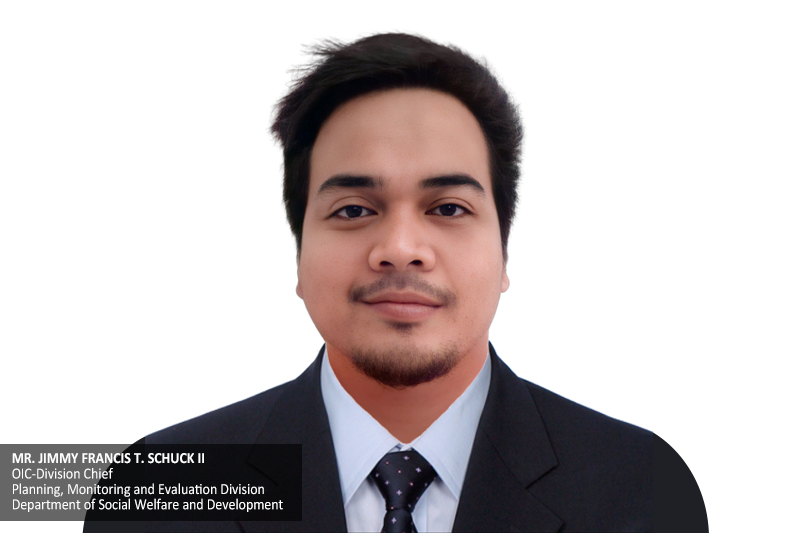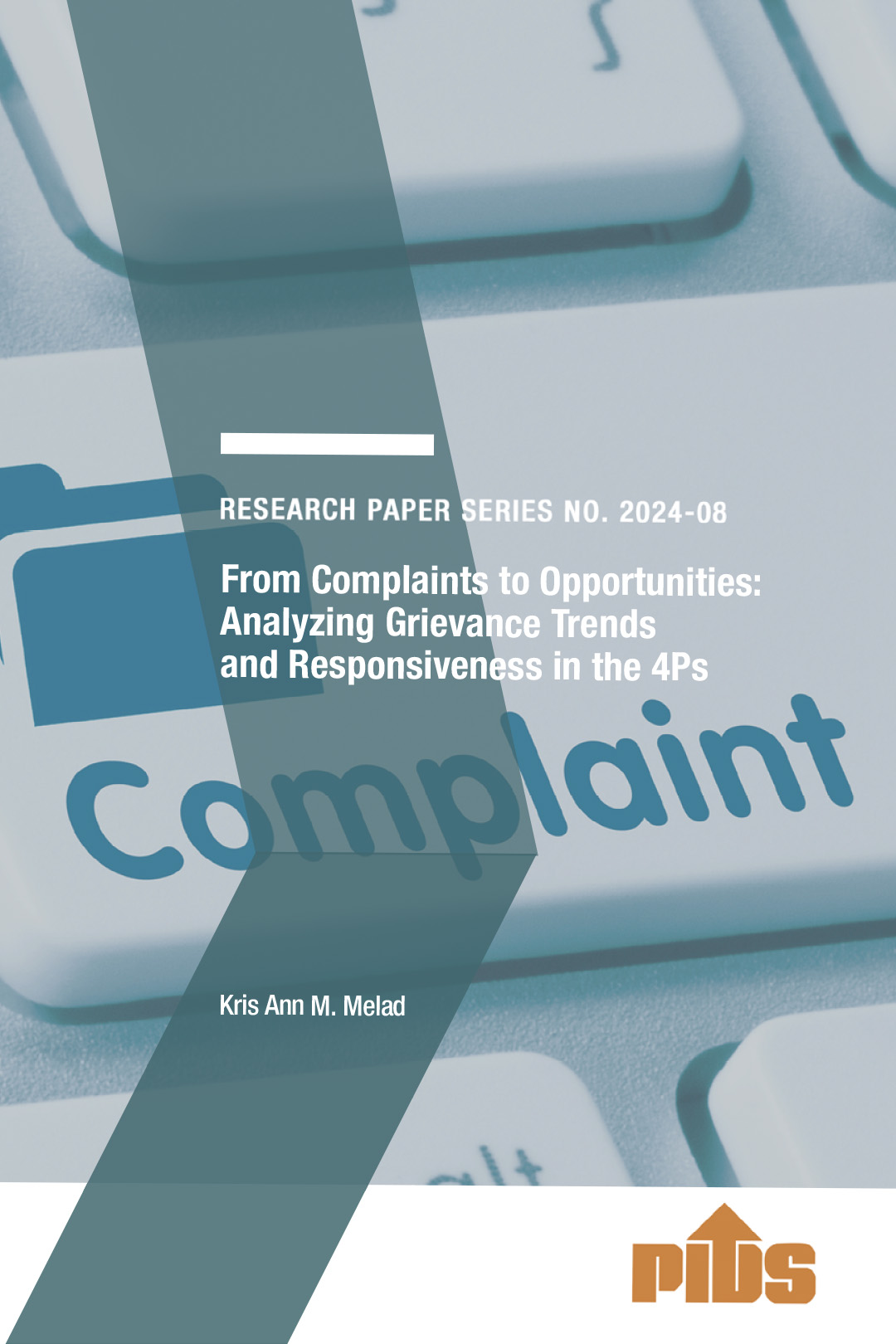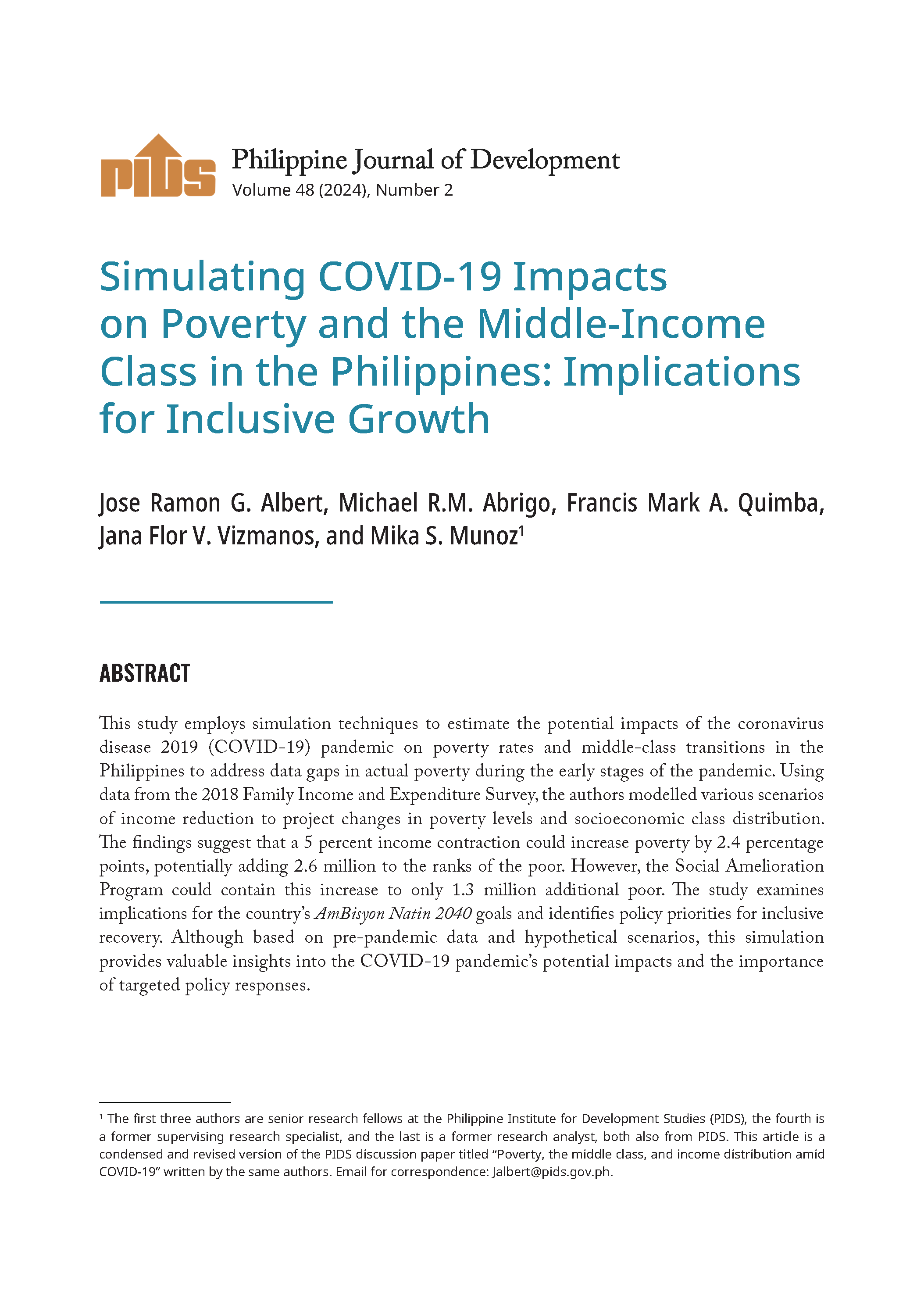
The government should maximize the Pantawid Pamilyang Pilipino Program (4Ps) cash grants to its optimum level by converging its operations and resources.
This was emphasized by Mr. Jimmy Francis T. Schuck II, OIC-Division Chief, Planning, Monitoring and Evaluation Division of the Department of Social Welfare and Development (DSWD), during a webinar recently organized by state think tank Philippine Institute for Development Studies (PIDS) on “Evaluating the Pantawid Pamilyang Pilipino Program’s Payment System”.
Schuck said this will help the government address the ballooning number of poor households as a result of the COVID-19 pandemic.
“Based on another study of [PIDS], there are about 1.5 million new poor households because of the COVID-19 pandemic. This comes with a cost requirement when we go beyond the target of 4.4 million households and cover the new poor households,” he noted.
Schuck identified strategies on how to maximize existing pro-poor programs like the 4Ps.
“The first thing [that the government should do] is to converge its operations. During the targeting stage, the government should not only select the 4Ps beneficiaries but should also [include] them [as direct beneficiaries of other government programs],” he said.
Schuck explained that this is already being done in some government programs like the Tertiary Education Subsidy, Sustainable Livelihood Program, and Social Amelioration Program.
The second strategy he mentioned is to converge the resources of different programs and those of concerned government agencies.
“[We need to gather] all the different implementing agencies, especially members of the 4Ps National Advisory Council, to apportion a certain [part] of their budget for these beneficiaries…All of these things are being harmonized through what we call as the social case management, meaning, mobilizing all the resources [of] different stakeholders so that beneficiaries will be able to maximize them,” he said.
Moreover, Schuck mentioned the need to improve the reliability and predictability of providing the cash grants to beneficiaries.
He pointed out that it is futile to increase the amount of cash grants if there is no assurance that the beneficiaries will receive the payouts on time. Hence, the government is looking for ways to improve the program’s cash transfers.
Schuck also said that the frequency of the payout, which is monthly, will be maintained, as more frequent payouts will entail additional costs. “More frequent payouts require more overhead costs [and] more bank service fees,” he said.
Meanwhile, Schuck mentioned that the DSWD is expediting the shift to transaction accounts. He explained that the beneficiaries can use these accounts as a conduit not just for the 4Ps grants but also for cash transfer assistance from other government agencies.
“For instance, during calamities, the DSWD could just give the account numbers of beneficiaries to humanitarian organizations or other government agencies that will provide emergency cash transfers. The Landbank will automatically wire these cash transfers to their accounts so they can receive them immediately,” he elucidated.
Lastly, Schuck urged the Bangko Sentral ng Pilipinas to improve the utility of the transaction accounts by attracting more preference toward using digital payments and designing more financial products and services that are responsive to the needs of consumers, especially the poor.
“Even if we continuously educate the poor, [particularly] the 4Ps beneficiaries on how to maximize their cash cards, if the environment by which these transaction accounts [are made] cannot be maximized, then [it could derail the impact of the program],” he concluded.
Watch the video of this seminar at https://www.facebook.com/PIDS.PH/videos/1260015987759939 or
https://www.youtube.com/watch?v=QhW3qtYP4aY.
For more videos of PIDS events, go to https://www.pids.gov.ph/videos.
This was emphasized by Mr. Jimmy Francis T. Schuck II, OIC-Division Chief, Planning, Monitoring and Evaluation Division of the Department of Social Welfare and Development (DSWD), during a webinar recently organized by state think tank Philippine Institute for Development Studies (PIDS) on “Evaluating the Pantawid Pamilyang Pilipino Program’s Payment System”.
Schuck said this will help the government address the ballooning number of poor households as a result of the COVID-19 pandemic.
“Based on another study of [PIDS], there are about 1.5 million new poor households because of the COVID-19 pandemic. This comes with a cost requirement when we go beyond the target of 4.4 million households and cover the new poor households,” he noted.
Schuck identified strategies on how to maximize existing pro-poor programs like the 4Ps.
“The first thing [that the government should do] is to converge its operations. During the targeting stage, the government should not only select the 4Ps beneficiaries but should also [include] them [as direct beneficiaries of other government programs],” he said.
Schuck explained that this is already being done in some government programs like the Tertiary Education Subsidy, Sustainable Livelihood Program, and Social Amelioration Program.
The second strategy he mentioned is to converge the resources of different programs and those of concerned government agencies.
“[We need to gather] all the different implementing agencies, especially members of the 4Ps National Advisory Council, to apportion a certain [part] of their budget for these beneficiaries…All of these things are being harmonized through what we call as the social case management, meaning, mobilizing all the resources [of] different stakeholders so that beneficiaries will be able to maximize them,” he said.
Moreover, Schuck mentioned the need to improve the reliability and predictability of providing the cash grants to beneficiaries.
He pointed out that it is futile to increase the amount of cash grants if there is no assurance that the beneficiaries will receive the payouts on time. Hence, the government is looking for ways to improve the program’s cash transfers.
Schuck also said that the frequency of the payout, which is monthly, will be maintained, as more frequent payouts will entail additional costs. “More frequent payouts require more overhead costs [and] more bank service fees,” he said.
Meanwhile, Schuck mentioned that the DSWD is expediting the shift to transaction accounts. He explained that the beneficiaries can use these accounts as a conduit not just for the 4Ps grants but also for cash transfer assistance from other government agencies.
“For instance, during calamities, the DSWD could just give the account numbers of beneficiaries to humanitarian organizations or other government agencies that will provide emergency cash transfers. The Landbank will automatically wire these cash transfers to their accounts so they can receive them immediately,” he elucidated.
Lastly, Schuck urged the Bangko Sentral ng Pilipinas to improve the utility of the transaction accounts by attracting more preference toward using digital payments and designing more financial products and services that are responsive to the needs of consumers, especially the poor.
“Even if we continuously educate the poor, [particularly] the 4Ps beneficiaries on how to maximize their cash cards, if the environment by which these transaction accounts [are made] cannot be maximized, then [it could derail the impact of the program],” he concluded.
Watch the video of this seminar at https://www.facebook.com/PIDS.PH/videos/1260015987759939 or
https://www.youtube.com/watch?v=QhW3qtYP4aY.
For more videos of PIDS events, go to https://www.pids.gov.ph/videos.












